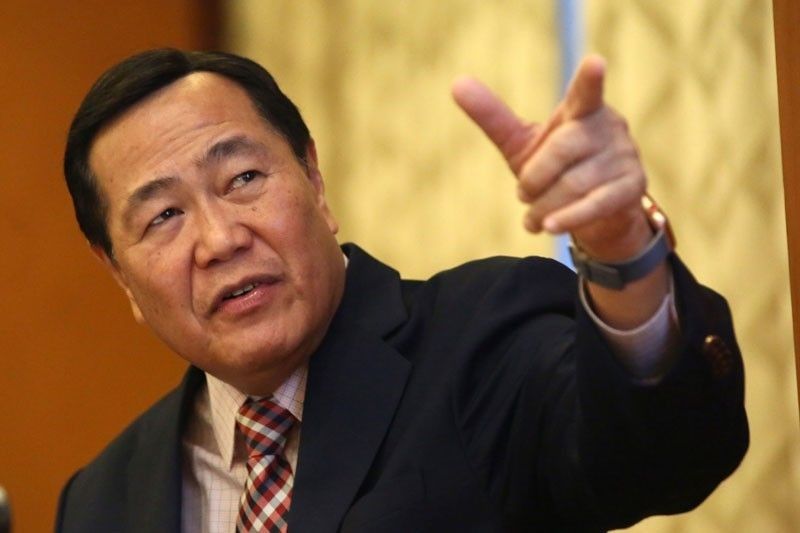Carpio to DOF’s Dominguez: Incorrect to say Philippines has never defaulted on its loans

MANILA, Philippines — Supreme Court Senior Associate Justice Antonio Carpio on Tuesday said President Rodrigo Duterte’s finance chief was incorrect for saying the Philippines has never defaulted on its loans, amid growing fears that the country is exposed to China "debt trap" diplomacy.
President Rodrigo Duterte plans to spend trillions of pesos to bridge the Philippines’ infrastructure gap, and to do so he sought Beijing and other countries' help for funding to reduce strain on his government’s budget.
But critics have warned that the Philippines could be the next victim of Chinese “debt trap” — where Beijing seizes strategic assets of states that fell into financial distress after borrowing heavily from the Asian power.
In a recent media interview, Finance Secretary Carlos Dominguez III said fears of the Philippines defaulting on any of its loans are unfounded, arguing that the government has never failed to pay its debts “even during the worst of times.”
READ: DOF chief: ‘Those fearing default on China loans have no faith in their country’
Commenting on Dominguez’s remarks, Carpio recalled that the Philippines “declared a moratorium on its foreign debt repayments” in 1983 after the Philippine central bank’s foreign reserves depleted at the time.
The magistrate then explained that under Article 7.1(6) of the Chico River loan agreement, which the Philippines and China signed in April last year, there is an “event of default” when “the borrower stops or suspends repayment to its creditors generally.”
“So, it is not correct to say that the [Philippines] never defaulted on its debt because the mere suspension of repayment, like declaring a debt moratorium, is already an ‘event of default,’” Carpio said in a statement.
According to a report by the New York Times dated Oct. 15, 1983, an advisory committee representing banks that extended loans to the Philippines granted the country’s request for a three-month moratorium on principal debt payments amid a crashing currency and a drop in the nation’s foreign reserves that made foreign debt servicing difficult.
The move came amid a domestic political crisis triggered by the assassination of Benigno Aquino. The opposition figure’s death eroded business confidence in the Marcos administration, stoking foreign fund withdrawals that led to the sharp weakening of the peso at the time.
“The Philippines is the first Asian country to request a change in its foreign debt repayment timetable since the international debt crisis intensified a year ago,” the New York Times reported in 1983.
‘No faith in their own country’
Philippine officials have been calming growing fears of a China “debt trap” after critics, including Carpio, claimed that Duterte agreed to unfavorable loan conditions for Beijing-funded infrastructure projects.
Finance Undersecretary Bayani Agabin told a press conference in Malacañang last week that “we’ve never had a history that we’ve reneged on our obligations,” adding that Philippine laws mandate the automatic appropriations for debt payments.
Defending the Duterte administration’s dealings with Chinese loans, Dominguez — who served as agriculture and agrarian reform chief during Corazon Aquino’s presidency — said that even when the Philippines was cash-strapped, it had never defaulted on any of its loans.
“The Philippines has never, never defaulted on its loans. The Philippines has not done it even in the worst time and the worst time was right after Marcos,” Dominguez said.
“The Philippines has no history of defaulting on its loans. So why are people saying now that we will default? They have no faith in the Philippines? I don’t know why people are saying ‘There might be a default.’ That means to say those people have no faith in their own country,” he added.
Last year, London-based think tank Capital Economics said given the "corruption problems" associated with Chinese infrastructure projects and the Philippines’ current account gap "already approaching unsustainable levels,” Chinese investment “could make problems worse” for the Southeast Asian nation.
READ: ‘Philippines would be better off shunning Chinese investment altogether’
— Ian Nicolas Cigaral with a report from Kristine Joy Patag
- Latest
- Trending


























